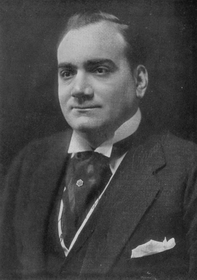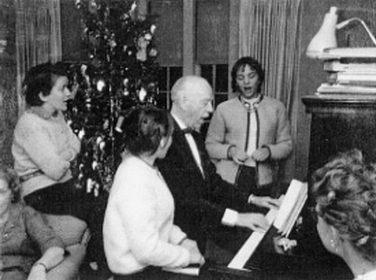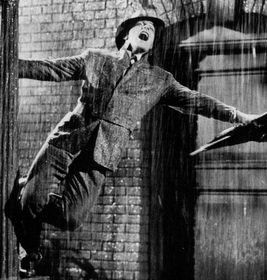
Home |
Up |
Next |



Were songs and singing better before amplifiers? Undoubtedly!
Acoustic Only!
The Church of Infinite Dimensions values and rejoices in the natural expression of all Ura. This is fundamental tenet of the Church and it informs Church policy in a multitude of ways at every level. The richest and most admirable form of singing is that which done in the natural form: ie without amplification. For this reason, (amongst others):
ELECTRONIC AMPLIFICATION AND RECORDED MUSIC IS BANNED IN ALL CHURCHES OF INFINITE DIMENSIONS!
Amplified music has its place in this world, and the Church accepts and respects that, however: that place is NOT within the walls of any of our ID parish churches.
Hymns in a ID parish church should be sung either unaccompanied or with small backing, such as organ, acoustic guitar or piano. The singing should be led by the parish choir or a soloist and the congregation should be invited to join in, at least half the time. Drums and brass are NOT normally appropriate for a typical weekly service. There may be exceptions to this rule for specific circumstances, for example: It may be appropriate at a funeral to have a pipes and drums, or a dead march and last post on the bugle. It may also be appropriate to have a large musical ensemble such as orchestra and large choir for some special large scale occasion, such as a major festival, although such an ensemble is unlikely to fit into a normal parish church.
The Trouble With Amplifiers And Recordings
The ready availability of fashionable recorded music of a high standard, the ubiquity of microphones and amplifiers and the relative difficulty in mastering music theory and practice have resulted in a dumbing down of music in every sense of the word since the 1950s. This is something that the Church deplores and intends to improve, if at all possible.
Once, the only music you could hear was played by live musicians right in front of you. This meant far more people took the trouble to learn to play and the general standard at the semi professional level was much higher, since there was a far bigger talent pool of properly trained musicians to choose from. The prevalence of recorded music in recent times has resulted in the death of all but a few professional ensembles. The concomitant lack of employment opportunities for would be musicians has resulted in fewer people pursuing it to the highest level. Worst of all, the fact that you can hear a top quality version of any tune at the click of a button has meant that few people can be bothered even STARTING to learn music! And the tragedy is that when people stop learning music they stop playing music and eventually, the music itself will die! This is what is bad about recorded music.
The advent of the amplifier didn't just mean louder music, it meant a change in the default ensemble. Instead of a Big Band full of brass instruments, double bass and grand piano, playing sophisticated music with complex arrangements, the default became a 5 piece rock band with electric guitars, keyboards, drums and a bass that was REALLY loud. The effect of the loud bass and drums and the chordal backing was that the music became driven by rhythm and chords. Vocal melody largely disappeared as singers joined the hypnotic block chord mentality where simplicity is the watchword. Bass singers disappeared from the scene as did true sopranos, as the requirement to sit just on top of the guitarist's chords shut the door on all but tenors and altos.
One of the worst effects of the amplifier revolution was that people stopped singing properly. In the days of Caruso an operatic technique was the ONLY way to sing! People without full projection simply couldn't be heard. It doesn't matter if your voice is sweet and your pitch is perfect, if you can't be heard you are wasting your time... It takes time, training and talent to sing properly and pretty soap opera starlets who have their little voice amplified and their dodgy pitch corrected by electronics are an anathema to those who value the real thing. The acoustic environment is the true test: compare a trained opera singer with a mic singer, without amplification in a supportive chamber, and you will struck by the difference, and in no doubt about who the real singer is.
How To Chose A Tune
Rock songs are all very well in their own context, but take away the bass, drums and guitars and they are generally unsingable. Just ask any ordinary person to sing any hit from the last 30 years... The lack of melody in almost all rock/pop music means that the song cannot stand on its own. If can't be sung unaccompanied it has no place in the acoustic environment and that means it has no place in the Church of Infinite Dimensions. If you want a song that can be sung by a football crowd, or something you can whistle, or something you can sing in a pub without a backing, then you need an OLD song! Something written before the rock era, like "Daisy Bell", "Auld Lang Syne", "She'll Be Coming Round The Mountain" or "Clementine". The melodies in these old tunes are so strong that almost every one can sing them and they really get you in! This is what community singing is all about, and this what the Church seeks a return to.
Since the entirety of the Protestant hymn canon was written before the Rock Era, and was designed to be sung unaccompanied, it fits the bill in many ways for the type of music that may be converted to Infinite Dimensional Hymns. Not only are the melodies often suitable, but the harmonies are often stellar and the arrangements often superb. The traditional Anglican Hymn Book is an absolute cultural treasure. These hymns are the best of best, selected from all comers over the last 300 years. To neglect such a repository of human endeavour and to cast it into the outer darkness would be a crime.
Of course this doesn't mean that EVERY old hymn is a winner. Certainly not! Many are boring repetitive dirges. However, in the old hymn books there are MANY hymns, concentrate on the gems, there's no need to waste time on the dross.
When choosing an existing hymn or song to convert to an ID Hymn, consider the theme you are addressing: A given theme should have an appropriate feel: a funeral march should not generally be set to a cheerful jig. Just because you like the tune doesn't mean that it is suitable for a given theme. The trick is to find the right theme for a given tune, then find the right words to fit that theme and tune. It's not always easy, but it's always possible!